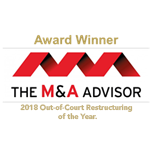If you’re selling a business for the first time, there are likely a lot of steps in the process with which you aren’t familiar. This is one of the reasons we recommend that all sellers obtain guidance from a trusted team of advisors that include investment bankers as well as an accountant, M&A attorney, and wealth management advisor. It’s also why we highly recommend entering a stage of pre-sale planning that begins months and even years before you plan to sell.
After all of the deal structure components have been negotiated in a letter of intent (LOI), every business acquisition will go through due diligence resulting in an acquisition purchase agreement — something else that first-time sellers may not have experience with. Understanding the components of these kinds of agreements is important, as they’ll determine how much money you walk away with up front, as well as what you may be on the hook for later.
What is an Acquisition Purchase Agreement?
A purchase agreement lays out what will be included in the sale of a company. The transaction will either be an asset sale or a stock sale, so the purchase agreement will fall along one of those two lines.
The purchase agreement will dictate the terms and conditions of the sale of the stock or assets from one party to another. It will determine what risks the buyer will take on, what will be transferred with ownership, and what the seller will retain after the deal closes. All of this is negotiated and is generally worked out in the LOI before the purchase agreement is drawn up. Below, we will discuss three components of a purchase agreement that affect a seller.
What are Reps and Warranties?
One of the components that will be negotiated in a purchase agreement are the reps and warranties. These are assertions that the seller makes about the current state of the business, as well as any significant events that may have happened in the past. Reps and warranties will include financial and legal statements, information about assets, personnel information, proof that tax payments are up-to-date, as well as explanations of any legal or environmental issues that were resolved in the past or may be ongoing.
During this process, as during the due diligence process, it’s important to be as transparent and honest as possible. At the end of the deal, the exhaustive schedules in the purchase agreement will be written that will serve as proof of the claims you’ve made about your business, so don’t set yourself up for failure by falsely representing the state of affairs.
Understanding Indemnifications
A purchase agreement will also contain certain protections for the buyer and/or seller. These protections, called indemnifications, exclude certain parties from responsibility for certain claims made against the business. For example, a seller may agree to indemnify a buyer against any claim regarding environmental issues that occurred under the seller’s ownership. Similarly, a seller may ask for indemnification for any activity involving the business in the future (once they no longer have any involvement or ownership).
How Escrow Can Impact the Sales Price
What happens if a seller breaches one of the reps and warranties? If there is proof of damage, the funds held in escrow may be used to satisfy the damage claim. The funds will be held by an escrow agent and paid out if a valid claim is made.
What sellers need to remember is that the escrow amount, usually a percentage of the purchase price, is held for anywhere between 12-24 months and temporarily delays them from receiving a portion of cash from the transaction. The amount, length of time and consideration (cash, seller note, etc.) of the escrow can be negotiated but will be part of any purchase agreement.
It’s important to do your homework and understand key terms and conditions before selling your business, but DIY research is no replacement for getting advice from experienced advisors like the team at MelCap. This will help ensure that you get what you want from the sale and can move forward with whatever comes next in your life’s journey.














